The Primary Causes of Iodine Depletion
Iodine is basically a micro nutrient, which is required by our body in trace amounts, but still it is very essential for maintaining a good health. Since iodine cannot be manufactured by our body, a perpetual source of iodine is needed for the adequate supply of hormones produced by the thyroid in our body. You can get adequate quantity of the dietary iodine by using the iodized salt etc. On the other hand, if you are not careful about your eating habits and you are not consuming sufficient quantities of iodine, this will result in the deficiency of iodine in your body. In consequence, the production of thyroid hormones is blocked, thereby producing symptomatic features of the deficiency of iodine.
 Recommended Daily Amounts for Iodine Intake
Recommended Daily Amounts for Iodine Intake
Amount of iodine needed for the infants up to the age of one year is 115 to 130 micrograms, on a daily basis. While the recommended daily intake of dietary iodine is 90 micrograms for the kids 1 to 8 years of age and 120 micrograms for the kids 9 to 13 years of age. On the other hand, adolescents and adults require 150 micrograms of iodine in their diet daily. Lactating and pregnant women have increased demand for iodine and require 295 and 220 micrograms, respectively. According to a research conducted on Americans, their iodine intake was found to be more than enough, with men consuming 230 to 300 micrograms and women consuming 180 to 210 micrograms, daily.
Functions of Iodine
A study conducted on the thyroid hormones showed that sixty-five percent of T4 or the thyroxine hormone is made up of iodine while fifty-nine percent of T3 or the triiodothyronone hormone consists of iodine. Both hormones, T3 and T4, are manufactured by our thyroid. These hormones play a vital role in the development of kidneys, brain, heart, muscles and pituitary gland. Their other functions include normal metabolism, enzymatic activity and the protein synthesis. The maintenance of our body temperature, growth and fertility is also regulated by these hormones.
Iodine Deficiency
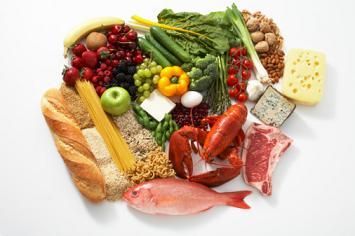 Our body is neither capable of manufacturing or storing iodine. Therefore, it is important to keep a maintained supply of iodine in the diet. Food items like cheese, eggs, seafood and yogurt are rich in iodine. Other examples included vegetables and fruits grown in the soil rich in iodine. On the contrary, areas which have a low content of iodine in the soil, produce food items low in the iodine content. Residents of such areas are more prone to develop iodine deficiency. On the other hand, there are certain foods abundant in goitrogens, such as cabbage, cauliflower and broccoli etc. The goitrogens block the uptake of iodine which leads to the decreased output of the thyroid hormones. Therefore, avoid consuming such food in huge amounts to prevent the iodine deficiency.
Our body is neither capable of manufacturing or storing iodine. Therefore, it is important to keep a maintained supply of iodine in the diet. Food items like cheese, eggs, seafood and yogurt are rich in iodine. Other examples included vegetables and fruits grown in the soil rich in iodine. On the contrary, areas which have a low content of iodine in the soil, produce food items low in the iodine content. Residents of such areas are more prone to develop iodine deficiency. On the other hand, there are certain foods abundant in goitrogens, such as cabbage, cauliflower and broccoli etc. The goitrogens block the uptake of iodine which leads to the decreased output of the thyroid hormones. Therefore, avoid consuming such food in huge amounts to prevent the iodine deficiency.
Effects of Iodine Deficiency
Lack of iodine during early life can affect the brain gravely. It can cause hearing, speech and growth problems in addition to mental retardation. Infertility, obesity and slowed mentation are a few of the problems faced by the adults. So, make sure you are taking balanced amount of iodine in the diet.

 Subscribe Now
Subscribe Now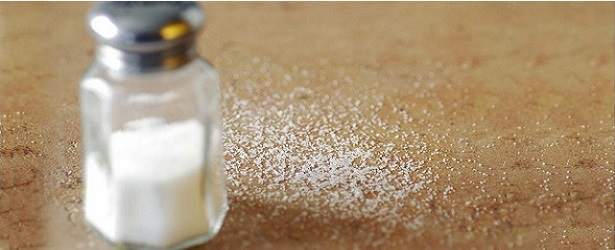

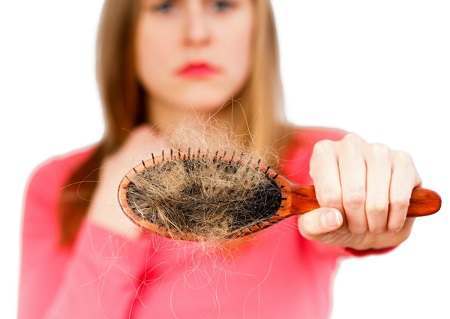 Hair and Thyroid Function
Hair and Thyroid Function If you are suffering from coarse hair or hair loss, the underlying cause might be a thyroid disorder. You might consult a doctor for this, who will conduct tests for determining your thyroid function and iodine status, in order to rule out iodine deficiency as a cause. If a diagnosis of thyroid disease due to lack of iodine is made, you might be given iodine prescriptions, as a cure. But
If you are suffering from coarse hair or hair loss, the underlying cause might be a thyroid disorder. You might consult a doctor for this, who will conduct tests for determining your thyroid function and iodine status, in order to rule out iodine deficiency as a cause. If a diagnosis of thyroid disease due to lack of iodine is made, you might be given iodine prescriptions, as a cure. But 

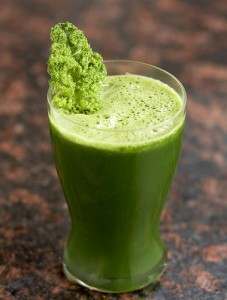 Exact
Exact 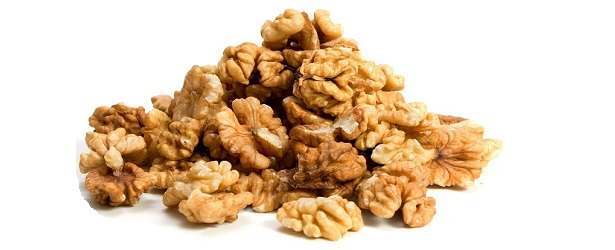
 Causes
Causes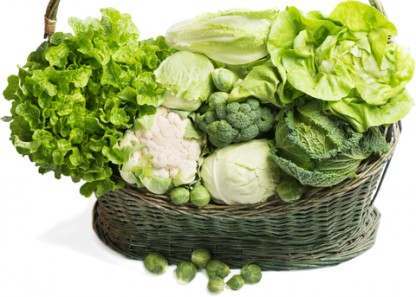 Relation of Goiter with the Dietary Factor
Relation of Goiter with the Dietary Factor
 Causative Agents for Goiter
Causative Agents for Goiter

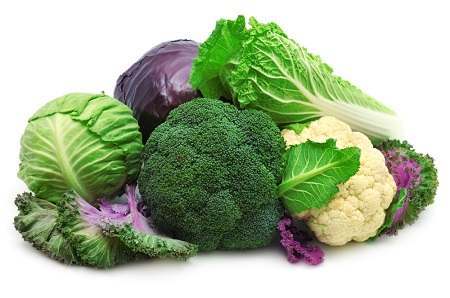 Cruciferous veggies are rich in sulfur containing compounds such as glucosinolates. Byproducts of these compounds, known as isothiocyanates, are produced when glucosinolates are broken down. According to an elaborate research these byproducts, isothiocyanates, can block the uptake and absorption of iodine by our thyroid gland, thus leading to the formation of a goiter. Goiter is essentially caused by the deficiency of iodine and consumption of cruciferous vegetables produces a relative lack of iodine by hindering effects of iodine on the functions of thyroid. Some examples of such vegetables are Brussels sprout, turnips, broccoli, cabbage, bok choy, collards, cauliflower, turnips, kohlrabi, rutabaga,
Cruciferous veggies are rich in sulfur containing compounds such as glucosinolates. Byproducts of these compounds, known as isothiocyanates, are produced when glucosinolates are broken down. According to an elaborate research these byproducts, isothiocyanates, can block the uptake and absorption of iodine by our thyroid gland, thus leading to the formation of a goiter. Goiter is essentially caused by the deficiency of iodine and consumption of cruciferous vegetables produces a relative lack of iodine by hindering effects of iodine on the functions of thyroid. Some examples of such vegetables are Brussels sprout, turnips, broccoli, cabbage, bok choy, collards, cauliflower, turnips, kohlrabi, rutabaga, 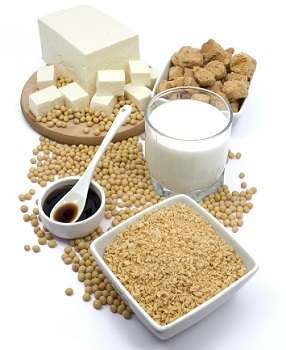 Soy Products
Soy Products